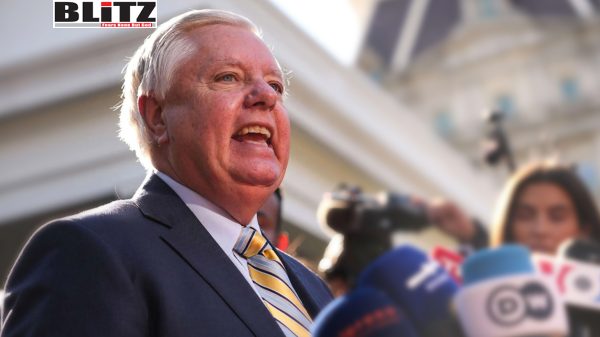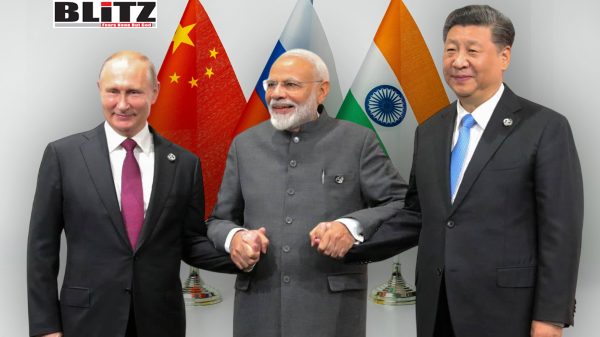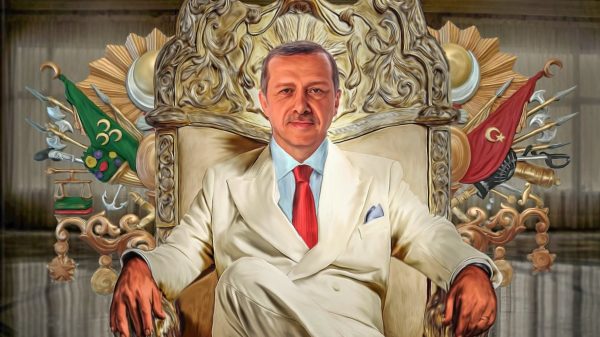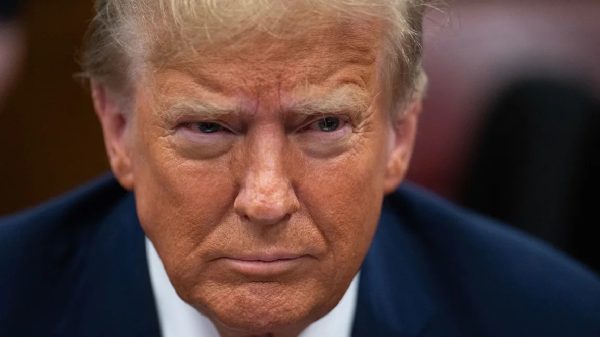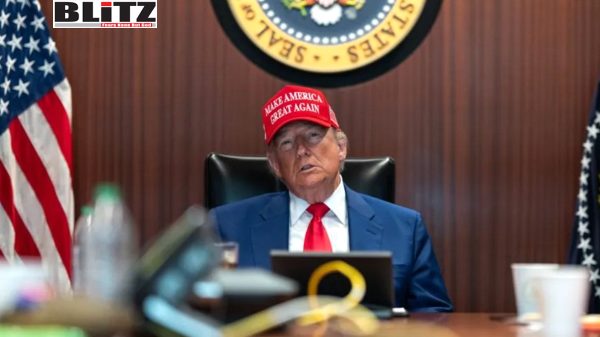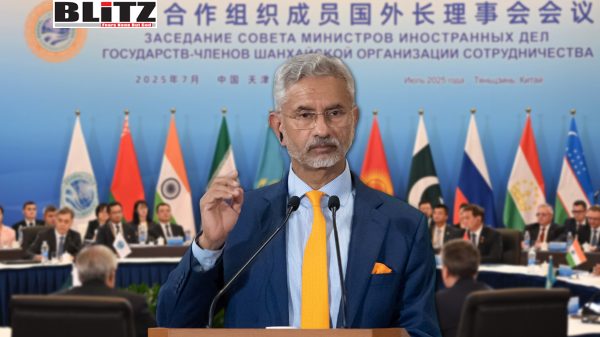Lula slams Trump’s tariff threat: ‘He’s not emperor of the world’
- Update Time : Saturday, July 19, 2025
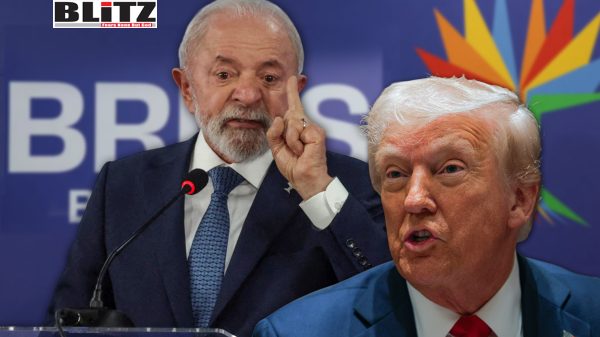
In a sharp rebuke to escalating economic tensions between the United States and Brazil, President Luiz Inacio Lula da Silva has firmly rejected US President Donald Trump’s imposition of a sweeping 50% tariff on all Brazilian imports. Lula, speaking candidly in an interview with CNN on Thursday, criticized Trump’s aggressive trade move and declared that Brazil “will not accept anything imposed on it.”
The controversial tariff announcement came through a letter posted on Trump’s Truth Social platform last week, bypassing conventional diplomatic channels. In the letter, Trump declared the tariff would take effect on August 1 and framed it as a response to what he described as “unfair” Brazilian trade practices and political persecution of his ally, former Brazilian President Jair Bolsonaro.
Lula responded with incredulity. “When I read the letter, I thought it was fake news,” he told CNN. “It’s breaking away from any protocol, any liturgy, that should exist between the relations between two heads of state.” His frustration with the delivery of the message – on social media rather than through diplomatic means – was matched only by his contempt for its content.
“We cannot have President Trump forgetting that he was elected to govern the US – he was not elected to be the emperor of the world,” Lula said pointedly. “Brazil will not accept anything imposed on it. We accept negotiation, not imposition.”
Trump’s statement was laced with political undertones, particularly his demand for Brazil to halt what he called a “witch hunt” against Bolsonaro. The former Brazilian president is currently under investigation for allegedly attempting to overturn the results of the 2022 presidential election, which he lost to Lula. Trump, who himself faces multiple legal challenges related to the 2020 US election, has consistently supported Bolsonaro and characterized the Brazilian judiciary’s actions as politically motivated.
The inclusion of Bolsonaro’s legal troubles in the tariff justification drew ire in Brazil. Brazilian officials see the move as an attempt to exert political pressure on their sovereign judicial system under the guise of economic policy.
Lula addressed the issue directly: “We are a democratic country, and our judiciary acts independently. No foreign leader has the right to interfere in our legal processes.”
Lula made it clear that while Brazil prefers dialogue, it is preparing a strong response. “If President Trump is willing to take seriously the negotiations underway between Brazil and the US, then I’ll be open-minded to negotiate whatever may be necessary,” he said. “But Brazil is also preparing ourselves to give an answer.”
That answer, sources in Brasília suggest, could include counter-tariffs on US goods, increased trade cooperation with other BRICS nations, and even possible appeals to the World Trade Organization. While Brazilian officials remain cautious, there is growing consensus that inaction would signal weakness.
Trump, however, warned that any Brazilian retaliation would be met with even steeper tariffs, possibly exceeding 50%. That would make Brazilian products the most heavily taxed of any US trade partner under Trump’s proposed global trade agenda.
In recent months, Trump has floated plans to impose a 10% tariff on all BRICS nations – Brazil, Russia, India, China, and South Africa – whom he accuses of trying to “destroy the dollar as the global standard.” He has also threatened secondary tariffs of up to 100% on countries that continue to trade with Russia, unless there is a resolution to the Ukraine war within 50 days.
Trump’s increasingly hostile rhetoric toward the BRICS bloc reflects a broader anxiety in Washington about shifting global power dynamics. The BRICS countries have been exploring alternatives to the dollar in international transactions, increasing bilateral trade in local currencies and forming their own development institutions.
The threat of coordinated tariffs against BRICS members is widely viewed as a pre-emptive attempt by the US to curb that influence. However, such aggressive economic measures may have the opposite effect, further pushing BRICS countries to deepen cooperation and reduce dependency on Western markets and financial systems.
In response to the tariff announcement, Brazilian Trade Minister Geraldo Alckmin stated: “We are reviewing all legal options to defend our trade interests. The tariff is excessive, unjustified, and likely violates WTO rules.”
The proposed 50% tariff could have significant economic repercussions for Brazil. The US is Brazil’s second-largest trading partner, with bilateral trade reaching over $100 billion in 2024. Key Brazilian exports such as steel, agricultural products, and ethanol would be hit hardest.
Brazil’s steel industry, which already faced steep US tariffs under Trump’s first presidency, has warned that this new measure could result in factory closures and job losses. Meanwhile, Brazilian soybean and beef exporters fear losing competitiveness in the US market.
For the US, the tariffs could result in higher prices for consumers and backlash from import-reliant industries. Already, economists have warned that a broader tariff regime could reignite inflationary pressures and harm US manufacturing sectors dependent on Brazilian raw materials.
Beyond trade, the tariffs threaten to strain the diplomatic relationship between Washington and Brasília. Lula has tried to position Brazil as a neutral player on the world stage, balancing relationships with both the West and Global South. Trump’s ultimatum may force Lula to tilt more decisively toward BRICS solidarity.
In his closing remarks, Lula emphasized sovereignty and mutual respect. “The United States cannot act like a bully on the world stage. We are willing to talk, but we will never kneel.”
As the August 1 tariff deadline looms, the world watches to see whether diplomacy will prevail or if Trump’s hardline stance will trigger a full-blown trade war with Latin America’s largest economy. Either outcome could reshape global trade relations and the geopolitical map in the months leading up to the 2025 US presidential election.



